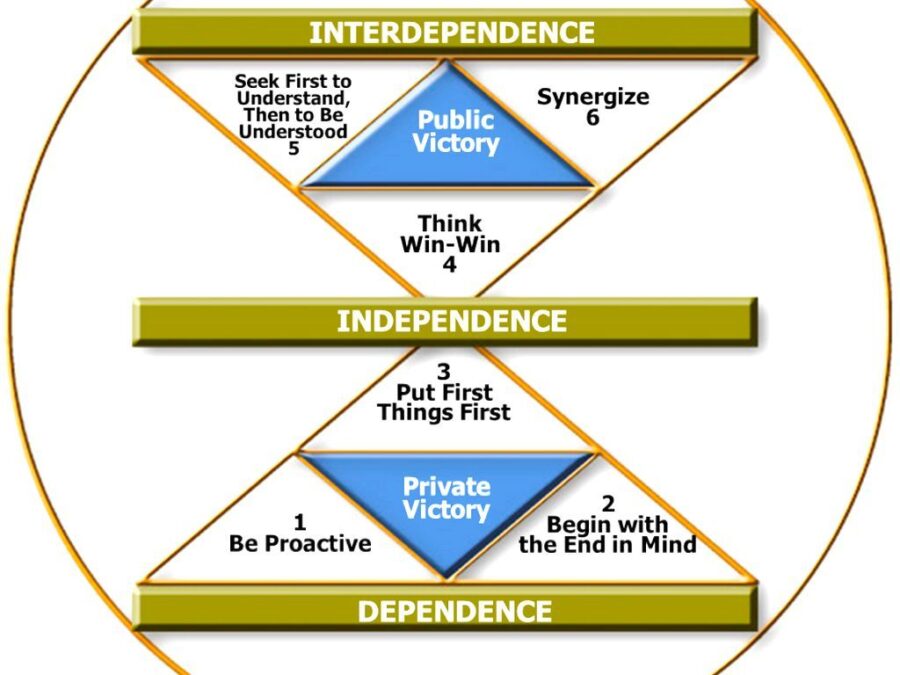If I have learned anything from my four years at university, it would be that most things which are written and published are merely variations on pure BS. I use a scale of BS in cultural criticism that ranges from Pure BS (10) to Moderate BS (5) to Tactful BS (1). The higher something falls on the scale, the more devoid of meaning it is.
The goal of an academic is to avoid this scale at all costs, as true research should not amount to any level of BS. The goal of the self-help writer rarely considers this as a goal, as they are not doing research of any substantive level.
The key example of this is Stephen Covey’s coveted 7 Habits of Highly Effective People.1 Covey does not claim to have set out upon an academic, substantive research project. Quite the opposite. He presents his book as a distillation of Mormon values (not ethics, as we shall see further on up the road) into a set of principals. This is a form of cultural hermeneutics known as principalizing. Principalizing is done so as to not betray its audience with high falutin academic-talk; yet, by avoiding academia, this betrayal it does not avoid.
Example: One key principle is synergy, “two heads are better than one,” and “the whole is greater than the sum of its parts.” This is pretty high on the BS scale (I would rate it a 6-7), as the principle makes no sense outside of its proper context. And this is the problem with principalizing: we extract a supposed principle out of a contextual hub, and expect it to make as much sense as it does in that hub.
Perhaps more dangerously, as we see in 7 Habits, one can take the principle and interpret it however they want, so long as they lay a paper trail denoting where they came up with the original verbiage. Covey takes this opportunity to link this principle to the following definitely different principles: open-mindedness, teamwork, valuing differences, and finally, “one plus one equals three, or six, or sixty–you name it.” What?
True ethical reflection on success and personal effectiveness should include ethically significant scenarios and a well-defined business ethic that drives the outcomes of those scenarios.
Here’s why Covey’s book is moderate-pure BS. Let’s take a simple ethical scenario: your boss wants to offer you a promotion but you know you do not deserve it because of information you have concealed from her. What on Earth does 1+1=3, 6, or 60 have to do with ethics? How can a “principle” like that give any guidance in such a scenario?
Maybe you + your boss = synergy? If so, that is a useless tautology (teamwork = teamwork). How would teamwork help you decide whether you should disclose that information or take the promotion? Habits on how to be effective in business must be formidable enough to at least withstand ethical dilemmas in the workplace, let alone answer them.
I understand that Covey is not writing an ethical treatise. However, a linkage to how these supposed “habits” lead to success would have been helpful. Alas, Covey did not help here and does not have the fortification to lead a talk on how to get ahead in business.
Notes:
- Stephen Covey, 7 Habits of Highly Effective People





Leave a Reply
Your email is safe with us.